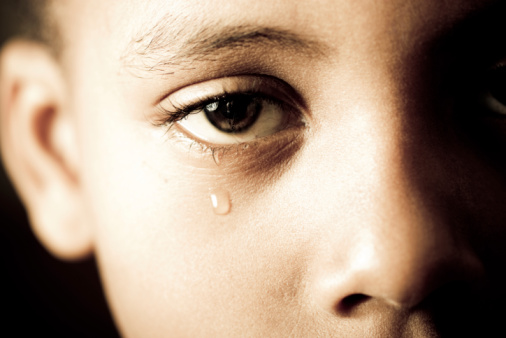
The takeaway from a new study fielded by the University of Georgia (UGA) (Orpinas, 2014) and published in the journal Aggressive Behavior (2014) doesn’t necessarily debunk the “mean girls” narrative, as suggested by a TIME magazine piece (Locker, 2014). Rather, it simply confirms what some already suspected: many girls and boys experience a developmental period when they are, well, just plain mean.
That’s the bad news.
The good news is that this cycle of cruelty is relatively short-lived … for most.
The research, led by UGA professor Pamela Orpinas, analyzed longitudinal data collected from 620 students randomly selected from six northeast Georgia school districts. Respondents were tracked from grade 6 to grade 12. One key discovery was the amount of relational aggression displayed by boys, behaviors once thought to be almost solely the bastion of girls. Perhaps more disturbing was that 96 percent of the students admitted spreading a rumor or making a nasty comment about someone during the seven-year period in which they participated in the research.
The data suggests that most of the mean-spirited behavior dissipated by the 12th grade. But our country’s well-publicized spate of incivility among students, athletes, politicians and just about every other identifiable group begs the question: Are mean kids simply mapping the modeling of the adults in their lives?
Tammy Simpson, the mother of Brandon Bitner, a 14-year-old who committed suicide after enduring years of bullying by classmates, warns that parents are particularly influential in promoting bullying behavior by youth when they themselves engage in gossip and backstabbing in front of their children.
No doubt.
A 2012 US News & World Report article, “Parents May Be Teaching Teens to Be Bullies,” highlighted the case of a Wisconsin news anchor, Jennifer Livingston, who was called “fat” by a viewer. Livingston is quoted as saying, “If you are at home and you’re talking about the fat news anchor, guess what, your children are probably going to go to school and call someone fat” (Sheehy, 2012).
Psychologist and national bullying expert Joel Haber, Ph.D., told Liberty Mutual Insurance’s The Responsibility Project, “Bullying is about exclusion, and parents often are unaware that they model this behavior when they gossip about other adults. We may openly talk about excluding people we know, in front of our kids. When we do this, we’re demonstrating that treating others in duplicitous ways is acceptable; we’re giving them approval for behavior that they’re going to test out. Kids follow our behavior more than listen to our words” (Watters, 2011).
And that behavior may also be in the form of overall parenting style.
For example, “authoritarian” parents may rule the roost with fear and intimidation, laying the groundwork for kids to transfer what they live to what they do (Grille, 2008), and that’s not only in the classroom or on the playground.
The rise of social media and, especially, anonymous apps, such as After School, Yik Yak and Ask.fm, simply fuel online, or cyber, bullying (Burns, 2014).
Too often, despite an arsenal of curricula designed to address bullying in all of its unsavory forms, we fail to take the time to teach children the attitudes and behaviors that represent the antithesis of bullying. Indeed, acquiring “friendship skills” is not only an important part of socialization and character development but also quite possibly a deterrent to the sometimes-crippling practice of bullying (Wallace, 2013).
And it’s never too early to start.
Characters of Character, a nonprofit organization providing tools and resources to educators and parents, advocates teaching children nine positive character traits, including friendship, manners, respect, responsibility and kindness. They believe that helping boys and girls focus on such important constructs at a young age will improve society for everyone (Characters of Character, 2014).
Thus, the path to prevention begins early and extends through the daunting years of middle and high school, on into adulthood when even those who have bullied or been bullied can take a new approach to replacing mean kids with nice ones.
© Summit Communications Management Corporation 2014 All Rights Reserved
REFERENCES
Ayer, R. (2014). UGA study finds it’s mean boys, not mean girls, who rule at school. December 2, 2014. UGA Today. http://news.uga.edu/releases/article/uga-study-mean-boys-not-mean-girls-rule-at-school-1214/ (9 Dec. 2014).
Burns, M. (2014). After School is the latest anonymous app resulting in student cyberbullying and school threats. December 3, 2014. TechCrunch. http://techcrunch.com/2014/12/03/after-school-is-the-latest-anonymous-app-resulting-in-student-cyberbullying-and-school-threats/ (9 Dec. 2014).
Characters of Character. (2014). Who we are. CharactersofCharacter.com. http://charactersofcharacter.org/about/ (9 Dec. 2014).
Grille, R. (2008). Natural born bullies. January 2008. The Natural Child Project. http://www.naturalchild.org/robin_grille/natural_born_bullies.html (9 Dec. 2014).
Locker, M. (2014). Boys may actually be meaner than girls, study says. TIME. December 3, 2014. http://time.com/3614730/boys-may-actually-be-meaner-than-girls-study-says/?xid=newsletter-brief (9 Dec. 2014).
Orpinas, P., McNicholas, C. and Nahapetyan, L. (2014). Gender differences in trajectories of relational aggression perpetration and victimization from middle to high school. November 17, 2014. Aggressive Behavior. http://onlinelibrary.wiley.com/doi/10.1002/AB.21563/abstract (9 Dec. 2014).
Sheehy, K. (2012). Parents may be teaching teens to be bullies. October 10, 2012. High School Notes. US News & World Report. http://www.usnews.com/education/blogs/high-school-notes/2012/10/10/parents-may-be-teaching-teens-to-be-bullies (9 Dec. 2014).
Wallace, S. (2013). Let’s be friends: a paradoxical approach to bullying prevention. March/April 2013. Camping Magazine. http://www.acacamps.org/campmag/1303/lets-be-friends (9 Dec. 2014).
Watters, E. (2011). Bullyproofing your children. December 15, 2011. The Responsibility Project. Liberty Mutual Insurance. http://responsibility-project.libertymutual.com/articles/bullyproofing-your-children (9 Dec. 2014).



























